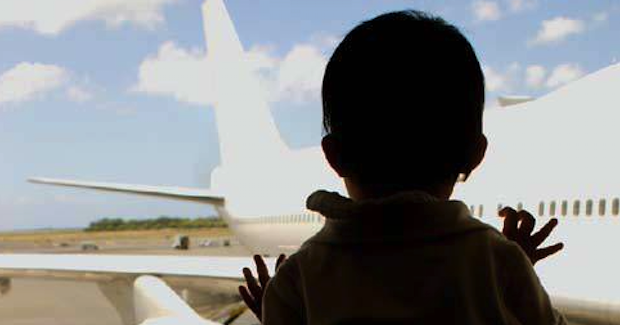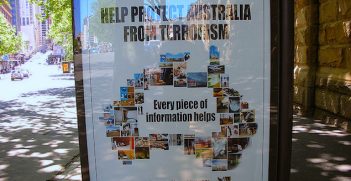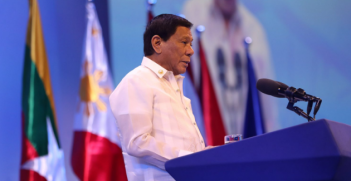International Child Custody: Lessons from Lebanon

In April, Australian mother Sally Faulkner and a TV crew from 60 Minutes made international headlines when they attempted to recover her two children, Lahela and Noah, from the streets of Beirut, Lebanon. The saga ended with the arrest of Ms Faulkner, the 60 Minutes crew and a $2 million bill for Channel Nine. Ms Faulkner’s situation is notable for its severe consequences and monetary scale, but international parental child abduction is not uncommon and Australia has one of the highest per capita rates in the world.
For families at risk, it is imperative to understand the legal landscape surrounding child custody orders. Otherwise, as demonstrated by the outcome of Ms Faulkner’s failed attempt, the consequences can be severe and unforgiving.
For a parent facing the nightmare situation of having their child taken overseas by their former partner, the path to recovering their child may initially be a frightening mystery. The first step is determining which country the child has been taken to or retained in. Whether that country is a contracting state of the Convention of 25 October 1980 on the Civil Aspects of International Child Abduction (the Hague Convention) is a significant, if not determinative, factor in recovering the child.
Under the Hague Convention
The Hague Convention entered into force in Australia in 1987 and now has 95 signatories. This convention was drafted by the Hague Conference on Private International Law and is one of a series of multilateral treaties that deals with the welfare of children.
The convention seeks to advance two main aims:
- securing the prompt return of children wrongfully removed to or retained in any contracting state of the Hague Convention; and
- ensuring that rights of custody and of access under the law of one contracting state are effectively respected in the other contracting states.
Fundamentally, the Hague Convention aims to restore the status quo. Thus, it operates by respecting the rights of custody as determined by the law of the state in which the child was habitually resident immediately before the wrongful removal or retention.
To this end, the Hague Convention requires all its contracting states to establish administrative bodies known as central authorities in order to administer the convention. The ‘left-behind’ parent would apply to the central authority of the child’s habitual residence, or the central authority of any other contracting state, for assistance in securing the return of their child. In Australia, the applicable body is the Australian Central Authority, a unit within the Attorney-General’s Department.
In non-signatory states
If a child is removed to a state that is not a signatory to the Hague Convention, the path is much more complex. Unless another treaty or agreement applies, as between Australia and Egypt, it is usually necessary for the parent to begin custody proceedings in the state to which the child has been taken. For some states, extradition treaties may also provide an additional avenue for action.
However, unless child abduction is classified as a criminal offence, the parent is forced to navigate the foreign legal system alone. The Australian government cannot interfere with the legal proceedings of another state, and Australian consular officers are limited to providing general advice and support.
Difficulties in enforcing custody rights overseas
The fiasco caused by Ms Faulkner’s attempt to recover her children is a clear indicator of the extensive issues in enforcing child custody rights across borders. Though such issues are most pronounced in situations involving non-signatory states, even cases falling within the scope of the Hague Convention face significant difficulties.
Other than the general standard set in Article 2 of the Hague Convention, there are no provisions that set forth standards or procedures to implement the Hague Convention. Accordingly, many states have failed to comply with the requirements of the Hague Convention due to internal difficulties with enforcing its rulings.
The statistics reflect the difficulties. Fewer than half of the 114 Hague Convention cases last year have resulted in the successful return of children to Australia, despite parents taking appropriate action under the convention. Additionally, applications take months on average to conclude, and have only increased in length since 1999. So, although the Hague Convention provides a valuable framework for resolving international custody disputes, it remains an imperfect system.
The domestic family law of different states can be notoriously complicated. Lebanese family law, for instance, recognises 18 different religions and has a total of 15 different sets of marriage laws, or personal status codes. The foreign law may also be heavily weighted toward either the father or the mother.
In these situations, parents are disadvantaged by the fact that Australia does not generally classify parental child abduction as a criminal offence. Therefore, unless the narrow obligations set out in sections 65Y and 65Z of the Family Law Act 1975 are breached, extradition treaties cannot be utilised. Consequently, parents are also denied the use of Interpol, extradition and mutual assistance procedures in recovering their children.
These limitations have led to extensive discussion, dating from before 1998, about whether parental child abduction should be made a criminal offence. Most recently, the Family Law Amendment (Financial Agreements and Other Measures) Bill 2015 proposed to widen the existing offence in sections 65Y and 65Z of the Act to include situations where children are wrongfully retained overseas. Unfortunately, as this bill lapsed at dissolution in May 2016, it is unlikely any change will be made in the near future. However, given that parental child abduction is a violation of law in 94 countries, such as in the USA, it is a matter that ought to be returned to the table as soon as possible.
Prevention is better than the cure
International parental child abduction is an issue that will only increase as international marriages and partnerships become ever more common. To protect children and parents, Australia should encourage more states to join the Hague Convention in order to provide greater certainty in the legal outcomes. For cases involving non-signatory states, Australia should prioritise re-examination of whether parental child abduction should be criminalised.
However, legal frameworks will remain imperfect solutions. They cannot prevent the potentially long-lasting emotional harm and financial difficulties that may be caused by a child’s abduction and wrongful retention. In such circumstances, it is important to provide greater information on how to prevent parental child abduction. In addition to the steps recommended by the Attorney-General’s Department, it is advisable to obtain independent legal advice immediately when international child custody matters are, or potentially could be, an issue.
Reyna Ge is the 2016 Peter Nygh Hague Conference Intern supported by the Australian Institute for International Affairs and the Australian Branch of the International Law Association. She graduated from the University of New South Wales in 2015 with a combined commerce and law degree. This article is published under a Creative Commons Licence and may be republished with attribution.





